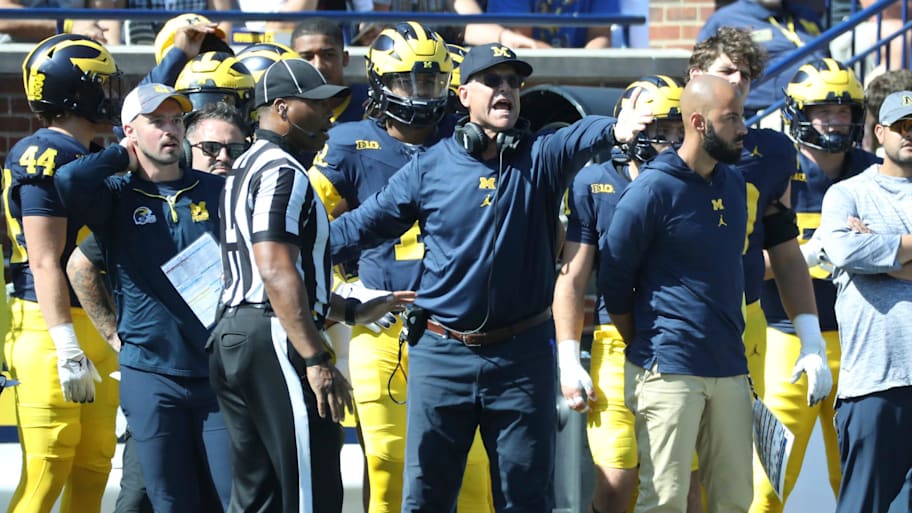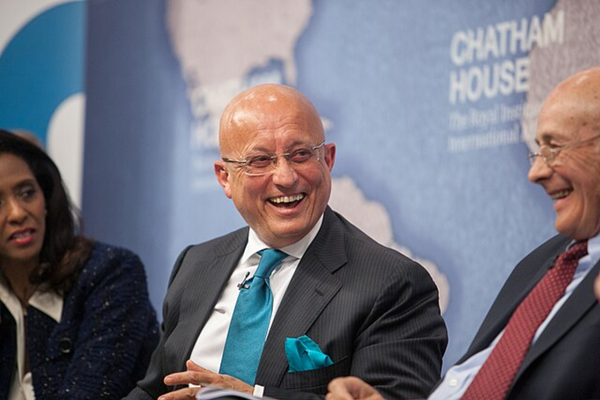
The NCAA announced the punishment for the Michigan Wolverines football program stemming from the Connor Stalions case on Friday. The school was given a multi-million dollar fine, recruiting restrictions and an extra game's suspension for coach Sherrod Moore, while Stalions and former head coach Jim Harbaugh received lengthy show-cause penalties.
One thing Michigan did not receive in the case was a postseason ban. The NCAA explained this decision in their official press release, prefacing that explanation by saying Michigan actually could have earned one. Via NCAA.org:
Michigan's repeat violator status, coupled with its Level I-Aggravated case classification, is sufficient grounds for a multiyear postseason ban. However, the panel determined that a postseason ban would unfairly penalize student-athletes for the actions of coaches and staff who are no longer associated with the Michigan football program. Thus, the panel determined a more appropriate penalty is an offsetting financial penalty instead of a two-year postseason ban.
So in the end, the NCAA decided not to punish the players who had nothing to do with the situation, which is fair. It seems that the NCAA haven't handed out postseason bans for a while now, and this ruling makes you wonder what a school would have to do to get one.
More College Football on Sports Illustrated
This article was originally published on www.si.com as The Simple Reason Michigan Didn’t Receive a Postseason Ban in Connor Stalions Case.







